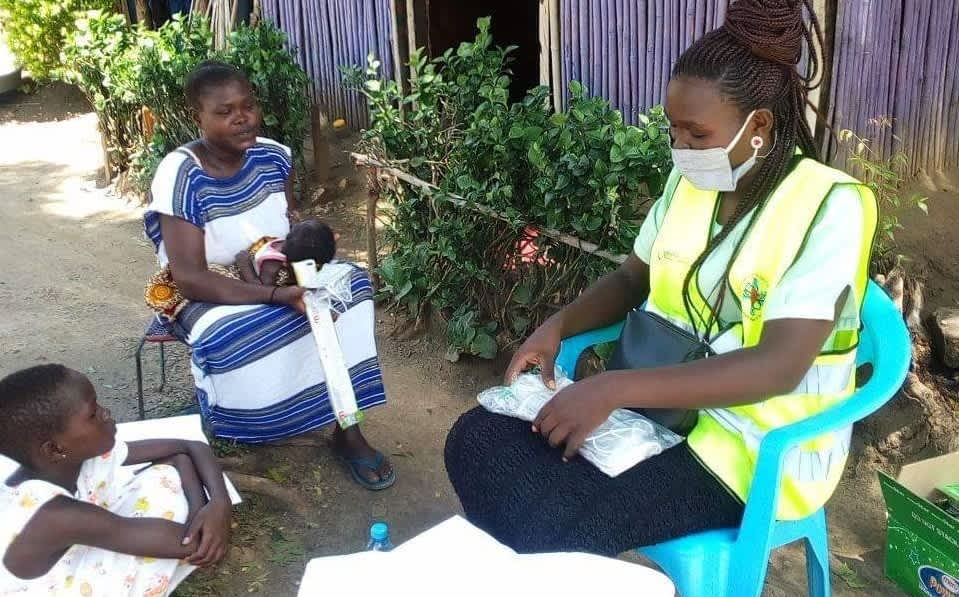Through its Women of Courage: Women, Peace and Security program, KAIROS has been working very closely with partners to learn more about the impacts of COVID-19 on their work and their responses to these challenges. As women peacebuilders in protracted conflicts, these partners are no strangers to crises and, as such, have modeled resilient, creative and courageous approaches that serve as excellent examples for us all.
In addition to dealing with public health concerns and measures, partners are also responding to what has been termed the “shadow pandemic” or the “double pandemic,” terms that refer to the substantial increase in gender-based and domestic violence that has resulted from the pandemic and associated lockdowns. The pandemic is having this effect all over the world, including in Canada where gender-based violence and domestic abuse rates are increasing by an estimated 20 and 30 per cent in parts of the country. However, countries with militaristic responses to the crisis and autocratic and repressive governance styles have only exacerbated violence and the need for psychosocial and legal support for women in all parts of the world.
Despite the challenges posed by physical distancing requirements, KAIROS’ partners have responded to the crisis to support women experiencing violence in their communities. The Organización Femenina Popular (OFP) in Colombia, for example, has used social media to form online support groups for women. They are providing psychosocial services online and via phone to provide much-needed support to women who are facing gender-based violence or domestic abuse. Similarly, Wi’am: Palestinian Centre for Conflict Transformation in the West Bank is responding to the increase in gender-based violence with conflict mediation and transformation initiatives. The Centre also plans to hire two psychologists and has set up a 24-hour hotline to provide frontline support to women and others experiencing gender-based violence.
KAIROS’ partners have also been adapting workshops and training for women leaders to respond to COVID-19 in their communities. This training includes equipping leaders with tools and resources to respond to the psychosocial impacts of the pandemic and the increase in gender-based violence.
Gender-based violence and domestic violence were a global pandemic long before COVID-19. However, around the world, the protective measures put in place to limit the spread of COVID-19 are putting women at an increased risk. KAIROS’ partners have been on the frontline of the response in their communities to ensure that while public health measures are followed, those who are the most at risk have the support they need as they seek to protect themselves and their families from the double pandemic.
Héritiers de la Justice in Democratic Republic of Congo is continuing with the production and hosting of the local weekly radio program “Tuitete Haki,” Swahili for rights, pivoting to address the COVID-19 pandemic public health directives and raise awareness about gender-based violence. The South Sudan Council of Churches’ radio talk shows discuss COVID-19, gender justice, trauma healing as well as peace messaging.
As COVID-19 completely transforms the world, we cannot lose sight of the world’s most vulnerable. Women peacebuilders are leading a feminist response that addresses the disproportionate impacts of this global crisis on women and girls and brings this pandemic of violence out of the shadows. We have much to learn from them. Their strong networks and relations with women community leaders and groups, as well as their experience in psychosocial support and trauma healing, allow them to reach marginalized women and ensure their voices and concerns are heard even in the context of the COVID-19 storm.
Women peacebuilders provide us with a glimmer of hope – a way forward when the world emerges from this crisis, one that is based on the wellbeing, health, safely and peace for all.
To read more about KAIROS’ partners’ response you can read their blog here.
Photo: South Sudan Council of Churches meets with women and youth to raise awareness about gender-based violence, domestic violence and teen pregnancies during COVID-19 lockdown.

